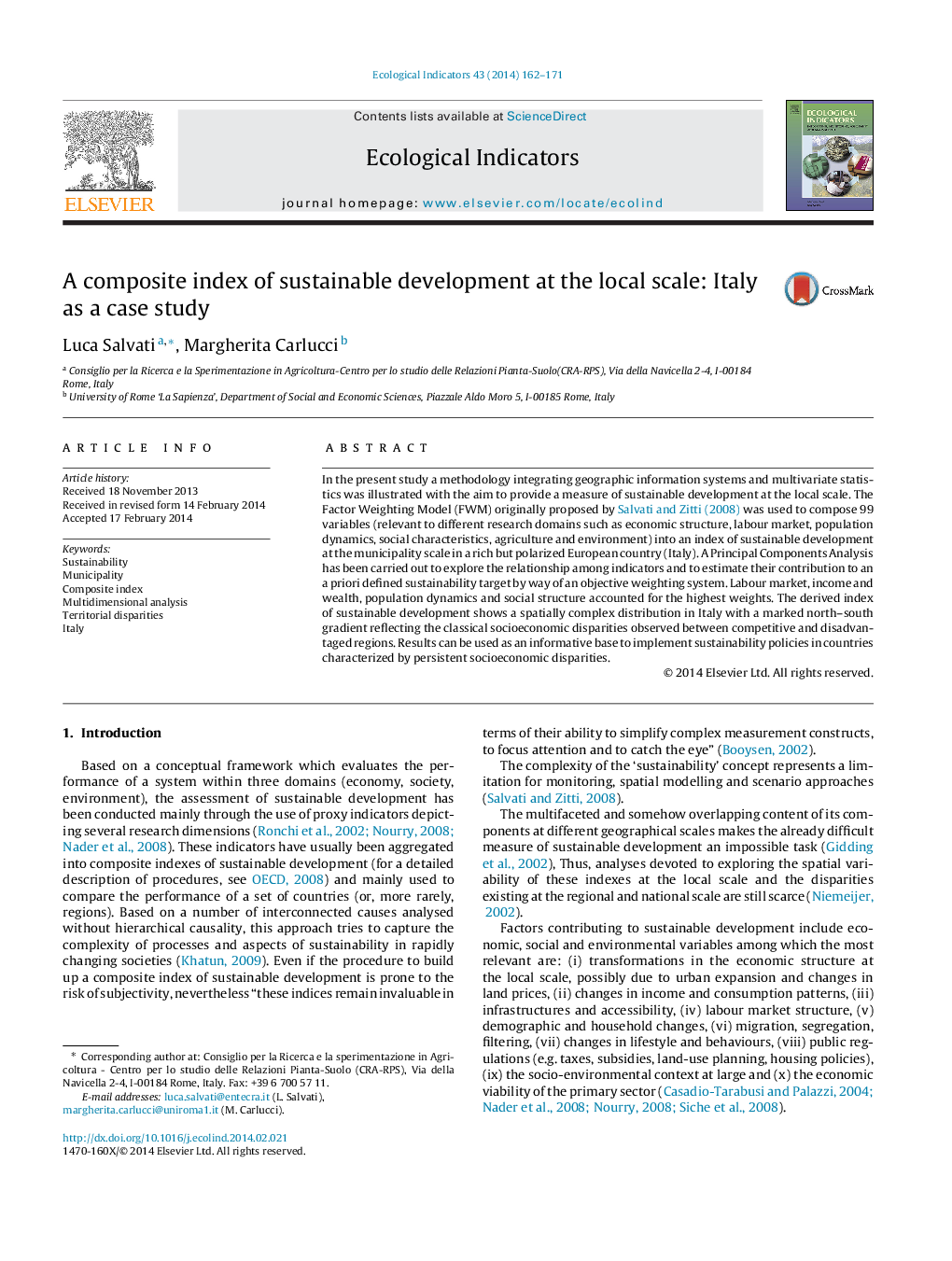| Article ID | Journal | Published Year | Pages | File Type |
|---|---|---|---|---|
| 4373169 | Ecological Indicators | 2014 | 10 Pages |
•We propose an index to assess sustainable development of Italian municipalities.•We composed 99 variables using an ‘objective’ weighting system resulting from PCA.•Labour market, demography and income/wealth accounted for the highest weights.•The spatial distribution of the composite index follows a north–south gradient.
In the present study a methodology integrating geographic information systems and multivariate statistics was illustrated with the aim to provide a measure of sustainable development at the local scale. The Factor Weighting Model (FWM) originally proposed by Salvati and Zitti (2008) was used to compose 99 variables (relevant to different research domains such as economic structure, labour market, population dynamics, social characteristics, agriculture and environment) into an index of sustainable development at the municipality scale in a rich but polarized European country (Italy). A Principal Components Analysis has been carried out to explore the relationship among indicators and to estimate their contribution to an a priori defined sustainability target by way of an objective weighting system. Labour market, income and wealth, population dynamics and social structure accounted for the highest weights. The derived index of sustainable development shows a spatially complex distribution in Italy with a marked north–south gradient reflecting the classical socioeconomic disparities observed between competitive and disadvantaged regions. Results can be used as an informative base to implement sustainability policies in countries characterized by persistent socioeconomic disparities.
